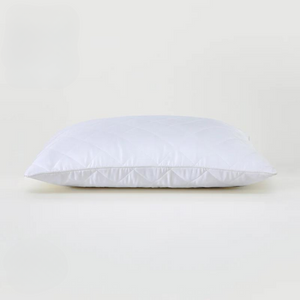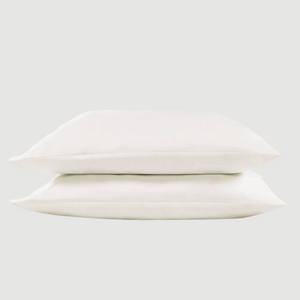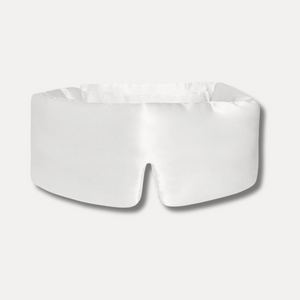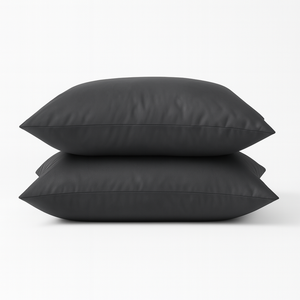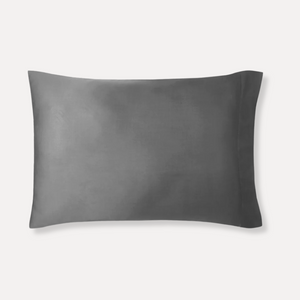The way you sleep impacts more than just your comfort — it also affects the planet. Every year, millions of tons of textiles are produced using water-intensive crops, chemical dyes, and wasteful manufacturing processes. But the growing demand for sustainable bedding is changing that story.
From renewable fibers like eucalyptus and bamboo to organic cotton and fair manufacturing standards, it’s now easier than ever to create a bedroom that’s both comfortable and conscientious.
In this guide, we’ll break down the most sustainable materials for bedding, the certifications that actually matter, and how to identify truly eco-friendly brands (not just greenwashing).
Why Sustainable Bedding Matters
Traditional bedding — especially those made with conventional cotton or synthetic fibers — can have a heavy environmental footprint. Consider this:
- Cotton farming consumes enormous amounts of water and often relies on pesticides.
- Polyester and microfiber are petroleum-based and shed microplastics when washed.
- Many dyes and finishes release harmful chemicals into waterways and ecosystems.
Sustainable bedding aims to reduce this impact by using renewable materials, non-toxic production processes, and ethical labor practices.
Choosing eco-friendly sheets isn’t just good for the planet — it’s also better for your skin and long-term health.
The Most Sustainable Bedding Materials
Eucalyptus Lyocell (TENCEL™)
Eucalyptus lyocell is one of the most sustainable fabrics available. Made from fast-growing eucalyptus trees, it’s produced in a closed-loop system that recycles 99% of water and solvents — meaning minimal waste and emissions.
The trees are grown without pesticides or irrigation, and the fiber itself is biodegradable and compostable.
Why it’s sustainable:
- Made with renewable, FSC-certified wood sources
- Closed-loop manufacturing recycles nearly all resources
- Requires up to 10x less water than cotton
- Naturally durable and long-lasting
Bonus: It’s also incredibly comfortable — cool, breathable, and silky soft.
Organic Cotton
Organic cotton is another excellent sustainable option when it’s certified by reputable organizations. Unlike conventional cotton, it’s grown without toxic pesticides or fertilizers and uses significantly less water thanks to healthier soil and farming practices.
Why it’s sustainable:
- No synthetic chemicals or GMO seeds
- Promotes soil and ecosystem health
- Safer for farm workers and local water systems
- When buying organic cotton, look for certification labels (like GOTS or OEKO-TEX®) to ensure you’re getting genuinely organic material, not just marketing claims.
Bamboo Viscose
Bamboo grows quickly, regenerates without replanting, and needs little water — making it a renewable resource. However, bamboo fabric’s sustainability depends on how it’s processed.
Bamboo rayon (viscose) production can involve chemical solvents unless made in a closed-loop system similar to lyocell.
Why it’s sustainable (when responsibly produced):
- Renewable, fast-growing crop
- Requires minimal land and water
- Can be processed safely in modern, closed-loop facilities
Always check whether bamboo bedding brands disclose their production process — true eco-conscious labels are transparent about their materials.
Linen (Flax)
Linen, made from the flax plant, is one of the oldest and most sustainable textiles in the world. It requires very little water or chemicals to grow and is fully biodegradable. Linen bedding naturally regulates temperature, making it ideal for both warm and cool climates.
Why it’s sustainable:
- Minimal water and pesticide use
- Long-lasting and recyclable
- 100% natural and biodegradable
The Certifications That Actually Matter
When you’re shopping for sustainable bedding, it’s easy to get overwhelmed by labels and buzzwords. Here are the key certifications to look for — and what they really mean:
1. OEKO-TEX® Standard 100
Ensures that every component of the product (fiber, thread, dye, button) has been tested for harmful substances and is safe for human health.
2. GOTS (Global Organic Textile Standard)
The gold standard for organic cotton. It certifies not just the raw materials, but also environmentally and socially responsible manufacturing from start to finish.
3. FSC (Forest Stewardship Council)
Verifies that wood-based fibers (like eucalyptus or bamboo) are sourced from responsibly managed forests.
4. TENCEL™ Certification
Issued by Lenzing AG, it guarantees genuine lyocell or modal fibers made through their eco-friendly closed-loop production system.
5. Fair Trade Certified
Ensures ethical labor practices, fair wages, and safe working conditions for factory workers.
If a brand’s bedding features two or more of these certifications, you can feel confident it meets rigorous sustainability and ethical standards.
How to Avoid “Greenwashing”
Unfortunately, not all brands that claim to be “eco-friendly” actually are. Watch out for vague marketing terms like natural, eco-conscious, or green without clear evidence to back them up.
To spot genuine sustainability:
- Look for third-party certifications (like those listed above)
- Read about the brand’s manufacturing process and supply chain
- Choose biodegradable or recyclable materials over synthetics
- Verify claims about water use and chemical reduction
Transparency is the true mark of an eco-friendly brand.
Why Eucalyptus Bedding Leads the Way
While each sustainable fabric has its strengths, eucalyptus lyocell stands out for combining luxury comfort, lasting durability, and minimal environmental impact.
Unlike cotton or bamboo rayon, it’s made through a modern, closed-loop system that conserves water and avoids harmful chemicals entirely. The result is a silky-smooth, cooling fabric that’s as gentle on the planet as it is on your skin.
In summary:
- Made with renewable resources
- Almost zero waste and minimal emissions
- Naturally hypoallergenic, antibacterial, and breathable
- Biodegradable and ethically sourced
Choose Better Sleep for You and the Planet
At Loomii, sustainability is woven into everything we do. Our Eucalyptus Lyocell Bedding Collection is designed to deliver exceptional comfort with an uncompromising commitment to the planet.
- Crafted from 100% eucalyptus fiber
- Produced in a closed-loop, zero-waste process
- OEKO-TEX® certified and biodegradable
- Ultra-soft, breathable, and cooling



